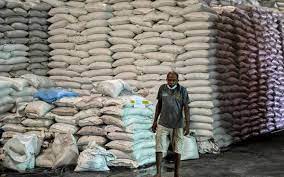
Sri Lanka's minister of Irrigation and President Gotabhaya Rajapakse's elder brother, Samal Rajapakse, has come under fire for urging people to eat cassava and alfalfa amid a shortage of rice in Sri Lanka.

"Will there be food shortages in the country"? He was responding to a question raised by a journalist to minister Chamal Rajapaksa.
The minister acknowledged the shortage of rice in the country and said cassava and alfalfa could be eaten instead.
Criticism of the Minister's remarks has arisen at various levels; Members of parliament and the public have commented that the minister's speech is reminiscent of the bad experience faced by the people during the rule of Sirimavo Bandaranaike.
Minister Chamal Rajapaksa's speech reveals that sri lanka is facing a severe famine by 2023.
Daytime cassava
Sirimavo Bandaranaike, who served as prime minister from 1970 to 1977, says people faced severe food shortages - says 67-year-old retired Grama Niladhari M.A. Saleem.
.jpg)
Saleem, a retired Grama Niladhari, said police had arrested people who did not follow the practice, saying the government had forced people to eat cassava on a particular day during the period and to provide cassava instead of rice in hotels.
Police then arrested those who were carrying more than two quarts of rice.
During the Sirimavo Bandaranaike regime, people bought cassava for a 'lift' (weighing 7.5 kilograms) for two rupees and fifty cents.
"People's Anger Defeats Sirima"
Suddenly saying 'eat cassava for not having rice' is a disgusting speech. A responsible minister cannot say that.
He attributed the need to eat cassava instead of rice to Sirimavo Bandaranaike's 'closed economic policy' in order to increase domestic production.
Sirimavo Bandaranaike came to power at the time with some policy declarations to boost GDP. His policy was good, but it did not succeed.
.jpg)
Sri Lanka has good resources. No government has yet made long-term plans to harness and utilize them properly.
During Sirimavo Bandaranaike's tenure, despite the implementation of the closed economic policy and the announcement of a policy to increase GDP, strategies for its implementation have not been implemented.
It was forbidden at that time to carry more than two-thirds of a queen from one place to another for the sake of 'everyone should produce rice'.
At that time the government bought the paddy from the public. The rice was sold by the government. Private is not allowed. people were waiting in long queues to sell their own land.
There was a severe economic crisis at the time. The government, which had been told to eat cassava instead of rice, was defeated by the people in the next general election.
We had enough paddy till last year. There was no impact on paddy production. There was no need to import rice. But the price of rice went up. The benefits of that price hike did not reach the farmers.
If the government buys paddy at a good price, farmers will not have to sell their paddy to the private sector.
Similarly, the government has now ordered farmers to switch to organic farming. But the government has not taken any formal steps to do so.
If Sri Lanka's paddy production is carried out successfully with proper planning, it will become a self-sufficient country in paddy production in Asia.




 click and follow Indiaherald WhatsApp channel
click and follow Indiaherald WhatsApp channel